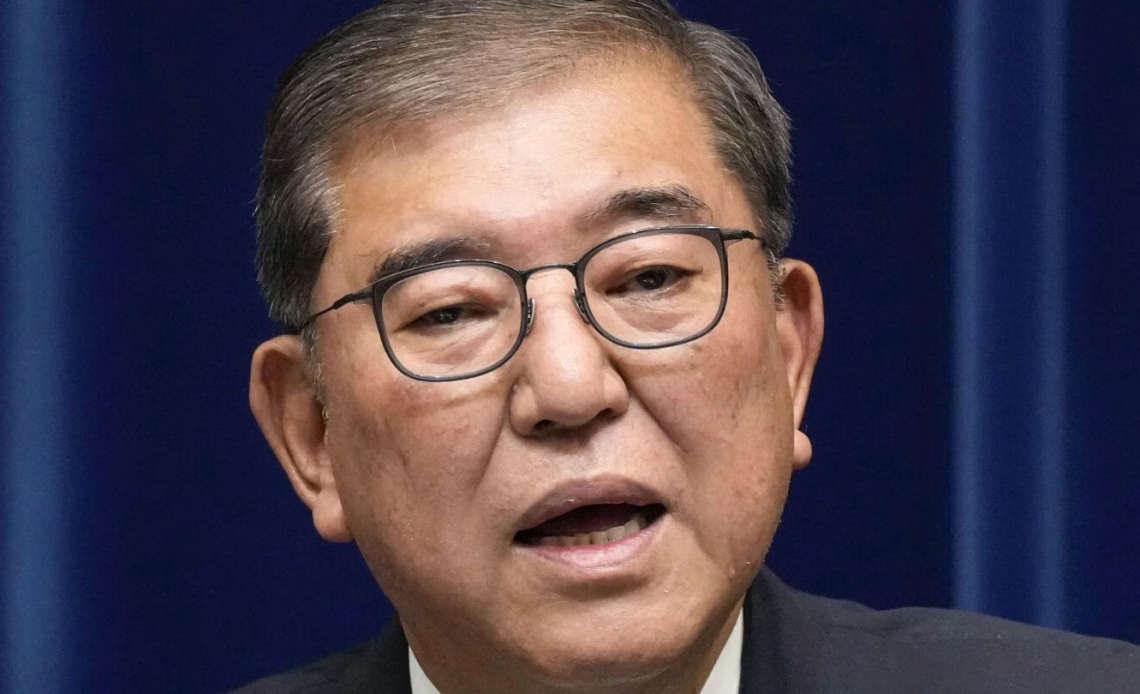TOKYO (AP) — Japan’s Prime Minister Shigeru Ishiba announced Sunday that he will resign, following growing calls from within his party to take responsibility for a historic defeat in July’s parliamentary election.
Ishiba, who took office in October, said he was stepping down as prime minister and as the head of his conservative Liberal Democratic Party.
Ishiba, a 68-year-old centrist, had resisted demands from opponents further to the right within his own party to resign. He argued that he wanted to avoid a political vacuum at a time when Japan faces key domestic and international challenges, including U.S. tariffs, rising prices and growing tensions in the Asia-Pacific.
Ishiba explained at a news conference Sunday night that he had intended for some time to take responsibility for his party’s summer election loss, but was first determined to make progress in tariff negotiations with the United States. He described it as matter of the national interest.
“Who would seriously negotiate with a government whose leader says he is stepping down?” Ishiba said.
He said the moment had arrived with an order by U.S. President Donald Trump on Friday to lower tariffs on Japanese cars and other products from 25% to 15%.
“Having reached a milestone in the U.S. tariff negotiations, I decided now is the time to make way for a successor,” Ishiba said.
Pressure from the party
The resignation came one day before Ishiba’s party was to decide whether to hold an early leadership election, which would have amounted to a virtual no-confidence motion against him if approved.
He said he made the “painful decision to resign” to avert that step because “it would cause a critical division within the party, and that is absolutely not my intention.”
Ishiba said he would instead start a process to hold a party leadership vote to choose his replacement, which is expected to be held in October. He is to remain as prime minister until a new leader is elected and endorsed by the parliament.
Ishiba’s leadership that lasted only one year underscores the instability of Japan’s minority government.
A maverick who won the leadership in his fifth attempts, Ishiba said he regrets he could not live up to voters’ expectations for change. “As a result, I failed to go my own way, and I wonder how I could have done better,” he said.
He said he is not going to run in the next leadership race, even though…

